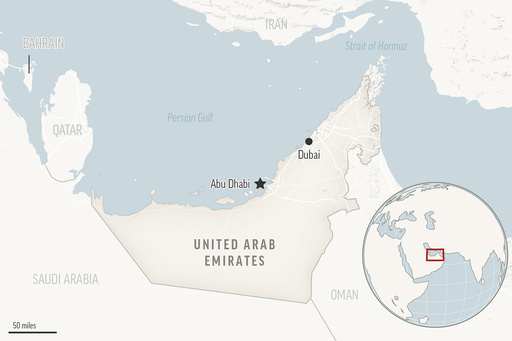ABU DHABI, United Arab Emirates — On Monday, the United Arab Emirates inaugurated its annual oil and gas summit, where officials reaffirmed commitments to escalate energy production despite the backdrop of declining global prices and a politically unstable landscape prior to the U.S. presidential elections.
This year’s Abu Dhabi International Petroleum Exhibition and Conference follows the recent hosting of the COP28 climate talks by the UAE, during which nearly 200 nations reached a significant agreement to reduce dependence on fossil fuels known for contributing to climate change. This marked a historic moment as it was the first time such a directive was formalized during a UN climate conference.
Despite these commitments to cleaner energy, the UAE is still planning to ramp up its oil production capacity to 5 million barrels per day in the near future, aligning its energy strategies with global shifts towards more sustainable sources. Meanwhile, officials from the UAE have skillfully sidestepped inquiries regarding the upcoming U.S. elections while continuing to nurture their relationship with Russia, even in the face of international backlash due to the ongoing conflict in Ukraine.
“Let me emphasize that the United Arab Emirates will always prioritize partnership over division, dialogue over discord, and peace over provocation,” stated Sultan al-Jaber, the head of the state-owned Abu Dhabi National Oil Company and a key figure in the COP28 discussions.
Current crude oil prices remain subdued, with the benchmark Brent crude hovering around $74 per barrel. This drop has been attributed to easing fears that ongoing Mideast conflicts might escalate into broader regional confrontations, combined with slower economic expansion in China and a healthy supply in the market that drags prices downward.
Political considerations were palpable during the summit, as attendees speculated about which U.S. political figure would be more favorable for their industries: Vice President Kamala Harris or former President Donald Trump. When asked about their preference, Suhail al-Mazrouei, the UAE’s Minister of Energy and Infrastructure, refrained from taking a stance. “I do not feel comfortable discussing the U.S. elections,” he remarked, adding that they wished both candidates well.
Despite the geopolitical tensions, the UAE has maintained a strong relationship with Russia, which was evident at the summit when attendees were informed about the availability of Russian translation services. Notably, Lukoil, Russia’s largest non-state oil corporation, was one of the main partners at the event.



